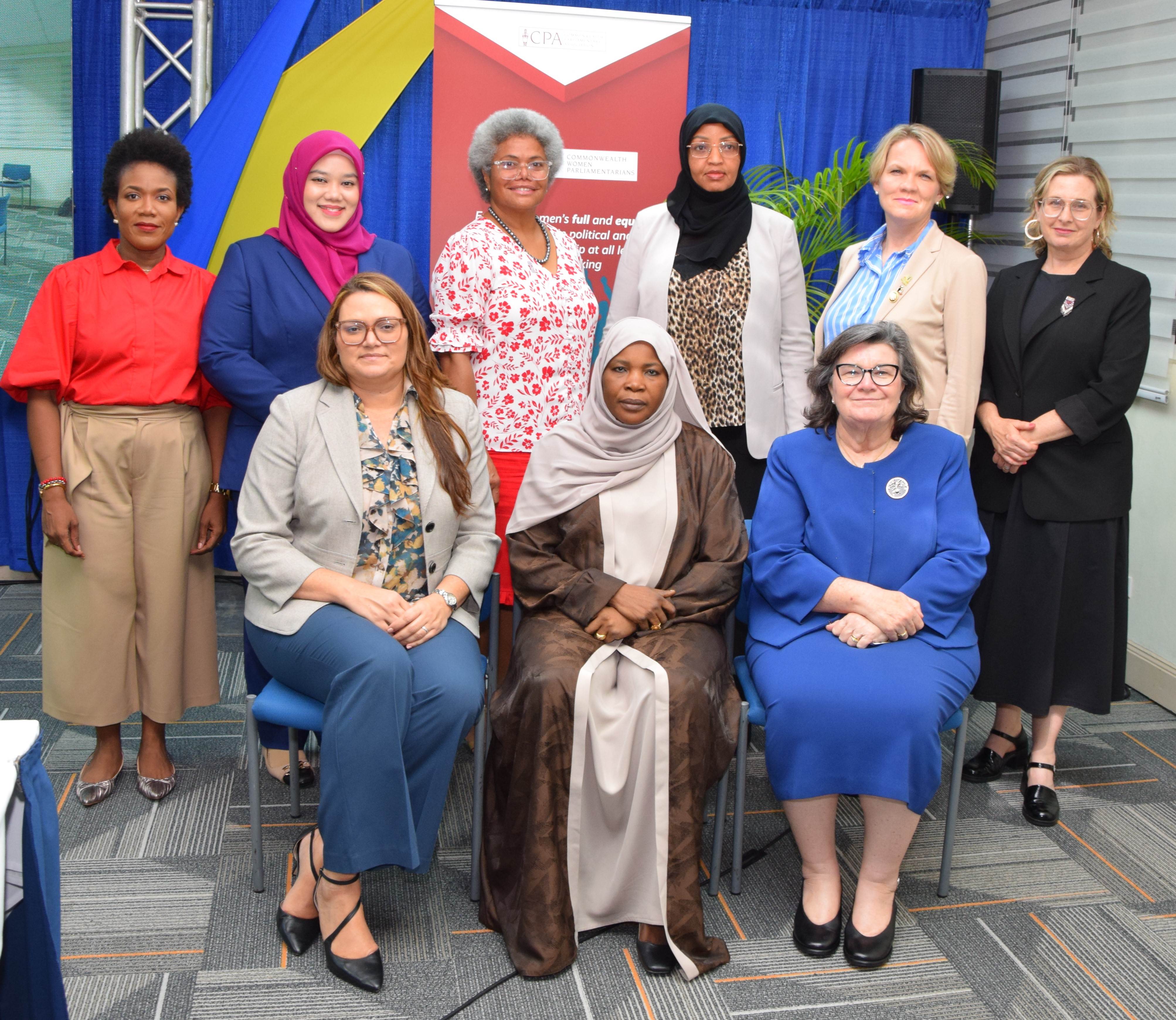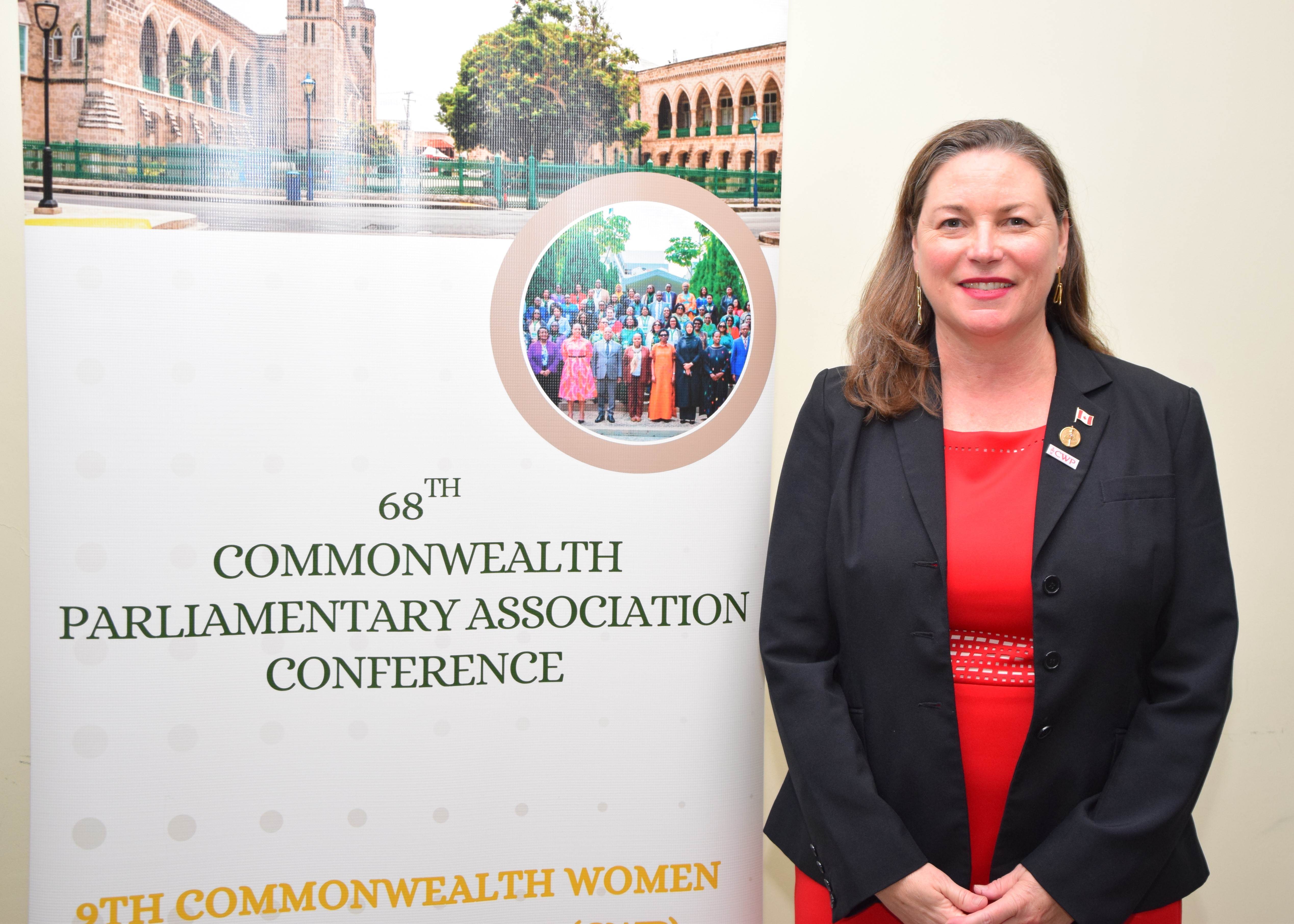
UN Women launch Legal Equality Handbook with case studies from CWP network
The Commonwealth Women Parliamentarians (CWP) network have contributed case studies to a new UN Women Handbook aimed at legal equality
The Understanding, Assessing and Achieving Equality Before the Law in the Commonwealth Handbook is a toolbox designed to aid Commonwealth Parliamentarians, Legislatures, judges, policy makers, policy influencers, academics and advocates working in governmental, intergovernmental and non-governmental spaces at advancing de jure equality (equality in the laws) in the Commonwealth.
"Equality before the law is the cornerstone of human rights and access to justice. This Handbook equips lawmakers and advocates with practical tools to dismantle discriminatory laws and advance gender equality across the Commonwealth. When working together, we can ensure that legal systems uphold the rights and dignity of every woman and girl," said Nyaradzayi Gumbonzvanda, Deputy Executive Director of UN Women.
The Handbook offers critical actors engaged in efforts to combat discriminatory laws as well as guidance in assessing and undertaking gender responsive legislative reforms. For Parliamentarians, the Handbook provides resources for preparing for debates on Bills which promote gender equality and offers ten key lessons and recommendations for successful law reform.
The Commonwealth Secretary-General, Hon. Shirley Botchwey, said: “When the law treats one gender as lesser, the whole of society bears the cost. This handbook offers a practical roadmap to help countries identify and reform laws that discriminate on the basis of gender, ensuring that the rights of women and girls are fully aligned with international human rights standards. When women and girls can learn, work, own property, participate fully and live free from discrimination, families become more secure, communities grow stronger and nations flourish. Equality does not belong to one group; it elevates us all.”
CPA Secretary-General, Stephen Twigg added: “For Commonwealth democracies to thrive, laws must fully reflect and protect gender equality. Parliamentarians play a vital role in driving this commitment from principle to practice. This Handbook provides Commonwealth Parliaments with the tools to assess existing legislation, address gaps and champion meaningful reforms needed to ensure gender equality is firmly embedded across legal systems.”
The Handbook also integrates critical data sources, including Sustainable Development Goal indicator 5.1.1 on legal frameworks to promote gender equality, and Women, Business and the Law data from the World Bank providing evidence-based benchmarks to guide reforms and track progress.
“This handbook is a roadmap for governments to deliver on legal equality by removing discriminatory laws and strengthening legal frameworks. When laws work for women, economies grow stronger and more resilient,” said Tea Trumbic, Manager of Women, Business and the Law.
Members of the Commonwealth Women Parliamentarians (CWP) network contributed to this piece of research through the provision of case studies and examples of legislation from their Parliaments that promote gender equality and contributes to efforts to eliminate discriminatory law.
Case studies included in the Handbook highlight legislation and best practice from CPA Branches such as Malawi, Rwanda, Tanzania, United Kingdom, Sri Lanka, Pakistan, the Solomon Islands and Papua New Guinea to name a few.
The Handbook was produced by UN Women in collaboration with the Commonwealth Parliamentary Association, the Commonwealth Secretariat and the World Bank Group, and also complements the Inter Parliamentary Union (IPU) work in this area.
This research is an outcome of the joint partnership (memorandum of understanding) between the CPA and UN Women signed in 2023 to achieve common objectives in the field of gender equality and the eradication of discrimination in laws and society.
Download the Handbook
Read about legal reforms for gender equality
In the latest issue of the CPA's Journal, The Parliamentarian, Nisha Arekapudi and Tanya Primiani from UN Women examine legal reforms for gender equality and achieving equality before the law.
Read the article below or download the CPA Journal
To find out more about the Commonwealth Women Parliamentarians (CWP) network please click here.
-ENDS-
The Commonwealth Women Parliamentarians (CWP) was founded in 1989 to increase the number of female elected representatives in 180 Parliaments and Legislatures across the Commonwealth and to ensure that women’s issues are brought to the fore in parliamentary debate and legislation. The network campaigns for gender equality in all spheres. For media enquiries, please contact communications@cpahq.org.




